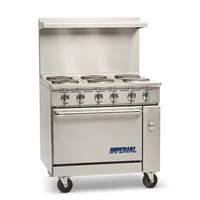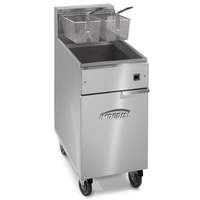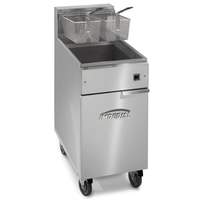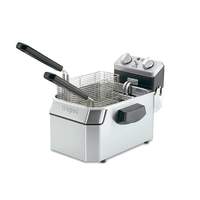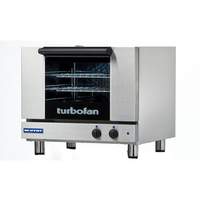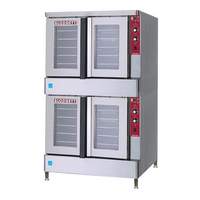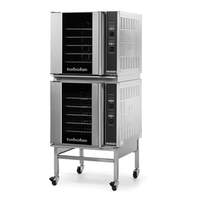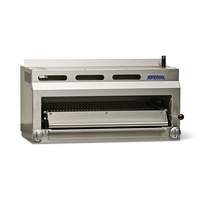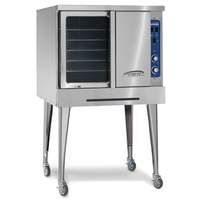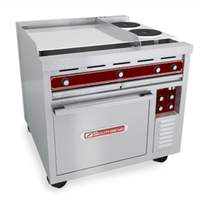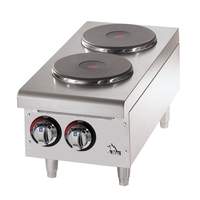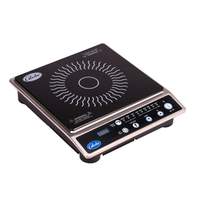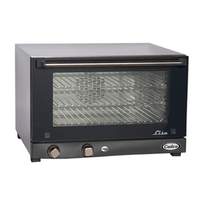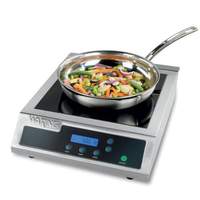The world is experiencing a significant shift towards sustainable practices, driven by the urgent need to combat climate change and reduce carbon emissions. One of the key components of this transformation is electrification – the transition from fossil fuel-powered machinery to electric-powered alternatives. As this trend gains momentum, it is set to revolutionize various sectors, including the food service industry. The foodservice industry is changing. Electrification of the industry is a fast-growing trend showing no signs of slowing down. With this in mind, businesses need to embrace the trend toward the electrification of equipment or risk being left behind.
Is your business ready for the future? Discover why the electrification of commercial kitchens is the number one industry trend, and how your business can get on board.
Why is Electrification a Growing Trend in Commercial Kitchens?
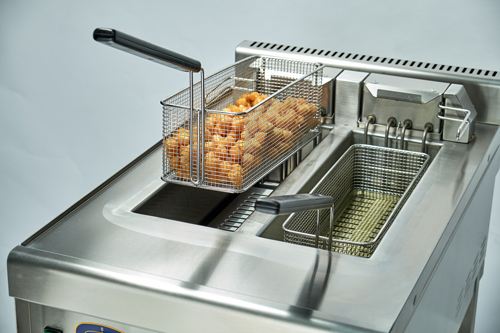
Electrification is increasingly being embraced throughout many sectors, with the introduction of electric vehicles in the automotive sector being a prime example. Now the foodservice industry is embracing its own shift towards electrification. Here are some of the reasons for the emergence of this fast-growing trend:
Emissions and Environmental Concerns
Information from the EPA states restaurants use up to ten times more energy than other commercial properties. With environmental concerns high on the agenda for many states, many are introducing changes to reduce emissions within their jurisdictions. Currently, 17 states are planning to introduce mandates requiring new commercial buildings to use all electric appliances. California’s ambitious Climate Plan is an example of this. California is making electric appliances in new builds mandatory as part of its pledge to be zero carbon by 2045.
Staff Health and Safety
The health and safety of staff is a priority in every commercial kitchen. Upgrading from gas to electric broilers can help increase workplace safety. Introducing electric broilers can greatly improve indoor air quality, as fumes are significantly reduced. The lack of a naked flame and gas connectivity makes electric broilers safer for busy commercial kitchens.
Cost Savings

Electric cooking is much more efficient than gas. Converting from gas to electric equipment can save operators thousands of dollars in utility costs per year.
Electrification refers to the process of adopting electric power sources to replace traditional fuel-powered systems. It involves utilizing electricity as the primary energy source for various applications, including electric ranges, fryers, broilers and many other foodservice equipment units. By embracing electricity, we can reduce our dependence on fossil fuels and significantly decrease greenhouse gas emissions, leading to a cleaner and more sustainable foodservice industry.
The Foodservice Industry: Ripe for Electrification
The food service industry, which encompasses restaurants, cafes, hotels, and catering services, is a major contributor to energy consumption and environmental pollution. Traditionally, this industry has heavily relied on fossil fuel-based appliances such as gas stoves, ovens, and grills, which emit significant amounts of carbon dioxide, nitrogen oxides, and other pollutants. However, the electrification wave presents an opportunity for the sector to reimagine its operations and become more environmentally friendly.
Transition to Electric Cooking Equipment

One of the significant changes that electrification brings to the food service industry is the adoption of electric cooking equipment. Electric stoves, induction cooktops, and ovens offer precise temperature control, quicker response times, and higher energy efficiency compared to their gas counterparts. By making this switch, restaurants can reduce their carbon footprint while also enjoying operational benefits such as improved safety, ease of use, and enhanced versatility in the kitchen.
Renewable Energy Integration
As electrification gains traction, the food service industry can take advantage of renewable energy sources to power their operations. Investing in solar panels, wind turbines, or participating in green energy programs can allow establishments to generate their electricity sustainably. By doing so, restaurants and other food service providers can reduce their reliance on the traditional power grid, minimize their carbon footprint, and potentially save on energy costs in the long run.
The electrification revolution is transforming industries across the globe, and the foodservice sector is no exception. Embracing electric-powered cooking equipment, adopting electric transportation, integrating renewable energy sources, and enhancing energy management practices can revolutionize the way restaurants and food service providers operate. Not only will electrification reduce carbon emissions and environmental impact, but it will also bring operational benefits, cost savings, and improved sustainability.
As the demand for sustainable practices continues to grow, it is essential for the food service industry to embrace electrification as a key driver of change. By doing so, businesses can contribute to a greener future while meeting the evolving expectations of environmentally conscious consumers.
Is your business ready for the future? Discover why the electrification of commercial kitchens is the number one industry trend, and how your business can get on board.
Call one of our product specialists at 404-752-6715 or email support@acitydiscount.com for more information.



